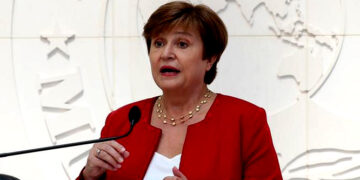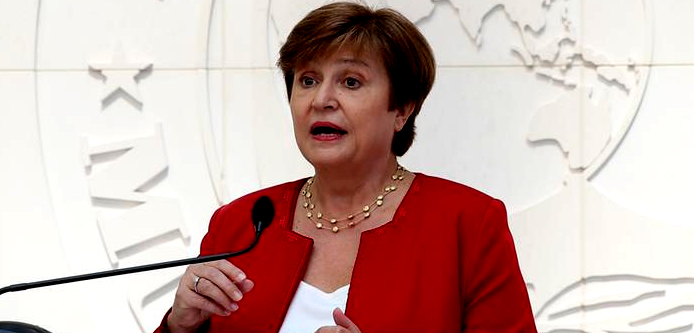By Emmanuel Nduka
The International Monetary Fund (IMF) has advised the Nigerian Government to urgently consolidate its fiscal policies to create space and reduce debt sustainability risks.
This, it said, would be achieved by increasing Value Added Tax (VAT) from the current 7.5 percent, and a total removal of fuel subsidy in order to propel long-term and inclusive growth.
Its latest advice is contained in the 2021 IMF Executive Board Article IV Consultation with Nigeria, which was concluded on January 31, 2022, and released on Tuesday.
“Nigerian economy is recovering from a historic downturn benefitting from government policy support, rising oil prices and international financial assistance,” the IMF’s report said, but noted that there is a need for “major reforms in the fiscal, exchange rate, trade, and governance areas to lift long-term, inclusive growth.”
Emphasizing the urgency of fiscal consolidation to create policy space and reduce debt sustainability risks, the IMF Executive Board “called for significant domestic revenue mobilisation, including by further increasing the value-added tax rate, improving tax compliance, and rationalising tax incentives.”
It also urged “the removal of untargeted fuel subsidies, with compensatory measures for the poor and transparent use of saved resources. They stressed the importance of further strengthening social safety nets.”
While commending the authorities’ proactive management of the COVID-19 pandemic and its economic impacts, the IMF noted that the outlook remains subject to significant risks, including from the pandemic trajectory, oil price uncertainty, and security challenges.
The global lending body further observed that in spite of the recovery in oil prices, the general government fiscal deficit is projected to widen in 2021 to 5.9 percent of GDP, reflecting implicit fuel subsidies and higher security spending, and projected at 3 percent for 2021.
“Moreover, the consolidated government revenue-to-GDP ratio at 7.5 percent remains among the lowest in the world.
“Notwithstanding the authorities’ proactive approach to contain COVID-19 infection rates and fatalities and the recent growth improvement, socio-economic conditions remain a challenge. Levels of food insecurity have risen and the poverty rate is estimated to have risen during the pandemic,” the IMF added.
It drew positives that the “non-oil sector could be stronger, benefitting from its recent growth momentum, supportive credit policies, and higher production from the new Dangote refinery.
“Nigeria’s ratification of the African Continental Free Trade Agreement could also yield a positive boost to the non-oil sector while oil production could rebound, supported by the more generous terms of the Petroleum Industry Act.”
The IMF Directors also welcomed the removal of the official exchange rate and recommended further measures towards a unified and market-clearing exchange rate to help strengthen Nigeria’s external position, taking advantage of the current favourable conditions.
According to them, exchange rate reforms should be accompanied by “macroeconomic policies to contain inflation, structural reforms to improve transparency and governance, and clear communications regarding exchange rate policy”.
They further recommended “strengthening the monetary operational framework over the medium term – focusing on the primacy of price stability – and scaling back the central bank’s quasi-fiscal operations”, and welcomed the “resilience of the banking sector and the planned expiration of pandemic-related support measures”.
The Directors agreed that while the newly launched eNaira could help foster financial inclusion and improve the delivery of social assistance, close monitoring of associated risks will be important, and also encouraged “further efforts to address deficiencies in the AML/CFT framework.”




































